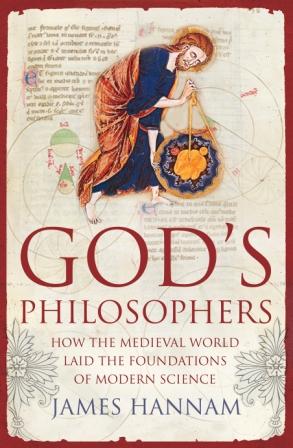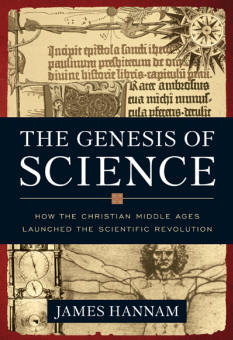
|
If you have enjoyed Bede's Library, you can order my book, The Genesis of Science: How the Christian Middle Ages Launched the Scientific Revolution (US) from Amazon.com or God's Philosophers: How the Medieval World Laid the Foundations of Modern Science (UK) from Amazon.co.uk. |
|
For my latest thoughts on science, politics, religion and history, read Quodlibeta
|
![]()
![]()
![]()
![]()
History articles
![]()
Contents
Looking it up in the Index
How Christianity helped us think straight
![]()
The only version of the Index Librorum Prohibitorum on the web in full is the 1559 edition. I would have thought it would be a godsend for anti Catholics (and there are a few of you around out there) but the 1948 edition is no longer available. There are also edited highlights because the original is very long and appears to be mainly made up of French erotica. Norman Davies Europe: A History (OUP, 1996) also has some of the titles of banned works on page 1274.
For those that don't know, the Index was a product of the counter reformation and basically involved banning books that were adjudged immoral or heretical. Vatican infighting meant the first effort was actually suppressed itself but they got their act together in 1559. The list of who's in and who's out reveals what a silly idea it was.
Calvin and Erasmus don't surprise us, and as a Briton I'm pleased to note our KJV joins Luther's German Bible (contrary to previous notices where I didn't have the full list). Since they banned Dante right at the start (his political De Monarchia rather than the Divine Comedy), I expect no self respecting writer would dream of being left off the list. One can imagine it was the first thing that their PR agent thought off ("Couldn't you just be a little anti-clerical – its so good for sales you know").
Alas, even the most stringent tests for quality break down at some point. By letting Samuel Richardson's appalling Pamela onto the Index in 1755 the Vatican seriously compromised the integrity of its list. Pamela is so bad that Henry Fielding was inspired to write Shamela as a parody (whether it is worth having to drag yourself through Richardson to get the joke is a matter for debate).
The Index compilers seemed to have a serious problem with the French in the nineteenth century. Hugo, Balzac, Dumas, Flaubert, Zola and Stendhal all passed the first test of literary accomplishment and got some of their works onto the list. The English faired less well. But Gibbon made it on the strength of his anti monastically polemic while Locke and Hume could hardly fail.
The lack of science on the index is revealing. The Origin of Species scrapes into the second last addition but oddly, the Ascent of Man doesn't. Galileo and Copernicus were added in the early sixteenth century and removed in the nineteenth but Newton does not seem to have ever made it onto the list. Perhaps even the Inquisition balks at banning something it doesn't understand a word of. Thomas Paine's Age of Reason seems a very strange omission although perhaps it being banned in England meant he must have been thought alright.
The strangest case is Descartes. He confirms his pedigree early on with some 17th century bannings. But inexplicably the Meditations doesn't make it until the last edition in 1948. Perhaps they were waiting for the paperback to come out.
The Index passed away during the sweeping reforms of Vatican II. It was greatly mourned by anti-Catholics the world over.
Back to contents
![]()
How Christianity helped us think straight
It is something that many secularists really don't want to admit but modern science grew out of Christianity. This is a subject that utterly fascinates me even to the extent of my wanting to research it if ever I get back to university. As a physicist I have been able to appreciate the enormous 'beauty of the spheres'. The derivation of the laws of thermodynamics from the first principals of statistical mechanics beats any poem. Where did these fantastic ideas come from?
The size of the subject precludes a full discussion here so I'll have a look at one very specific point that illustrates the general point.
The question concerns why the ancient Greeks failed to build on the fantastic legacy of Athens and so reach technological take off. And why did the Christian civilization of Western Europe manage it? The Greeks had the time - from Alexander's conquests to the Moslem invasions they were basically undisturbed for a thousand years. They also had the brains. Even if the Hellenistic Greeks produced no Socrates or Plato, the names of Galen, Archimedes and Ptolemy aren't those we associate with dunces. They had the ideas. Whether it is Aristarchus and his heliocentric cosmology, Eratrosthenes getting to within 50 miles of the earth's diameter or the Pre Socratic atomists, the Greeks thought of everything. And they had the mathematics - basically the same maths that Newton had. We know that a primitive steam engine was invented in Alexandria but things went no further.
Why not?
To understand we have to look at the way the Greeks thought. At root they saw the universe as big and alien. The most powerful force was Fortune. Even the gods were subject to Her whims. She was fickle and dangerous and to upset Her was foolish indeed. The greatest sin was 'hubris' or false pride. We would call it tempting fate. If this is the way you think, the experimental method is simply not going to appeal. The idea that the universe ran according to strict mathematical rules was just laughable. To even suggest it would attract the beady eye of Fortune.
There were exceptions. The planets were thought to not be of this world and so did run like clockwork. But all their orbits had to be circles as that was the perfect shape. Mathematics itself was something mystical and beyond comprehension.
Hence the Greeks failed to describe the world. Oriental cultures were also dominated by this idea of inescapable fate. Science once again seemed a pointless and dangerous activity.
Enter the Christians, who after a thousand years of barbarian invasions finally managed to achieve some sort of stable (if rather dynamic) civilization in Europe. They didn't see the world in thrall to fickle fortune but governed by a just God. He had given his Law and he kept to it. He was constant and reliable. He could be trusted not to change his mind. It followed that His universe would be the same. It was now worthwhile to find out what the laws it ran by were.
The Byzantines and Moslems provided these Christians with the cream of Greek thought and their greatest minds set to work. St Thomas Aquinas, in his mammoth Summae, explained how the world around us reflected the perfection of God. Roger Bacon gave us the experimental method. The scene was set.
Whether the individual scientist was actually a Christian (and they all were) was irrelevant. The whole Christian worldview was what counted. If you were brought up in it, it defined the way you thought.
The secularist reply that I have heard to this argument is that science was born of brave men fighting the darkness of superstition and having creating something new and unconnected with the religious society around them. I fear that the secularist would rather commit hara-kiri with a particularly blunt knife than admit anything good has come out of religion.
The greatest non Christian scientist before 1900 was Charles Darwin. He proposed the radical idea of natural selection and once more suggested that nature was blind and capricious. It is very possible that his agnosticism as well as his scientific education significantly helped him reach the conclusions that he did. Now we have gone full circle. Even physics, once the home of determinism and purpose in the universe has embraced the randomness of quantum mechanics.
Fortune is once again taking centre stage.
Eric Harrington has done me the honour of writing a reply to this essay from an atheist's point of view while a version of it appeared in the British magazine Prospect in March 2000. I have written a much expanded essay on the subject of the history of science.
Back to contents
![]()

